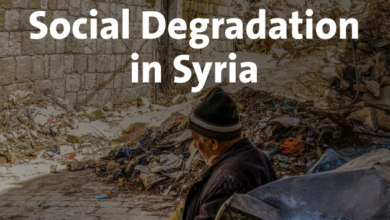The aim of this paper is to provide an in-depth analysis of the relating dynamics of the Syrian conflict and the public health of the Syrian population. By using a hybrid framework based on capabilities and political economy approaches, it endeavors to distinguish between three examples of overlapping policies and their impact on general health of the population. The first policies and interventions we examine are related to direct armed conflict and are, primarily, designed to fuel, sustain and enable the continuation of the conflict. The second are the administrative policies that are indirectly connected to the conflict yet attempt to sustain basic and core services. Lastly, the third are the sanctions and their direct relation and impact on human development. The paper delves into the details of these policies and their direct impact on health as pertaining to the perspectives of rights, equity and justice.
This paper prioritizes public health as a core human capability within the political, social and economic context during the time of armed conflict in Syria, analyzing the impact of conflict dynamics on health capabilities through the assessment of health outcome, health system, health related policies in the time of conflict, and the determinants of health. It further identifies the direct and adverse impact of sanctions on the health sector in Syria.
This research paper by Rabie Nasser and Amr Dukmak from the Syrian Center for Policy Research (SCPR), is part of a study titled “Syrian Trade, Health and Industry in Conflict Time (2011-2021) A study on the impact of war, public policies and sanctions” published in March 2022 by the Konrad-Adenauer-Stiftung (KAS) Syria/Iraq Office.
Read the full paper here







